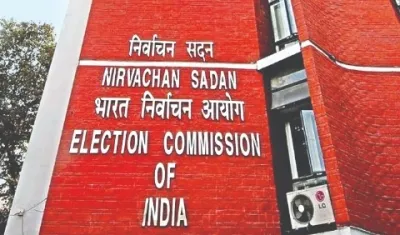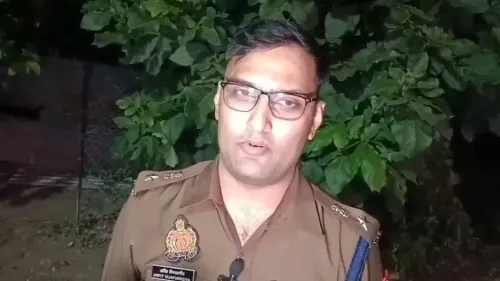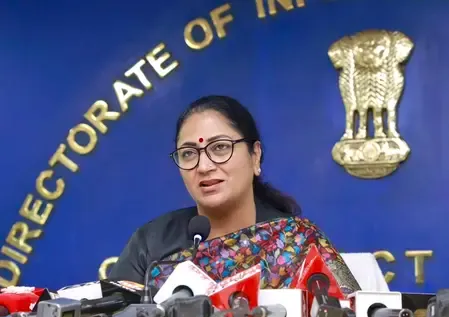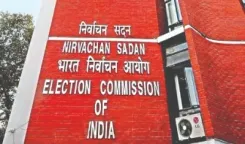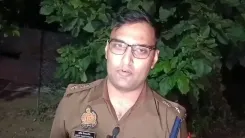Did Assam CM Himanta Biswa Sarma Justify His Critique of Congress Over the 1971 India-Pakistan War?
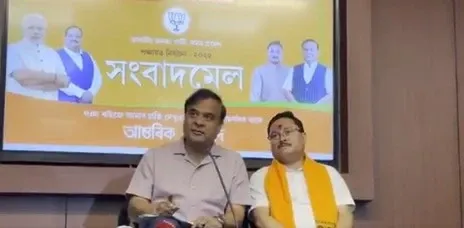
Synopsis
Key Takeaways
- Sarma critiques Congress's historical decisions.
- Highlights the significance of the 1971 war.
- Questions the handling of post-war diplomacy.
- Points out missed strategic opportunities.
- Reflects ongoing national security debates.
Guwahati, May 13 (NationPress) Assam Chief Minister Himanta Biswa Sarma ignited a political discourse on Tuesday with pointed comments directed at the Congress party, scrutinizing its historical approach to national security and diplomatic strategy.
Critically examining past decisions made by the Congress leadership, Sarma specifically highlighted the 1971 India-Pakistan war, urging the party to clarify its position on matters of war and peace.
He posed a provocative question: does Congress believe that India should have persisted with military actions even after the surrender of Pakistan's Director General of Military Operations (DGMO)? His remarks seemed to target what he views as discrepancies in the opposition's current discourse surrounding national security.
Sarma further condemned the Congress party's management of post-war diplomacy, especially concerning the formation of Bangladesh. While Congress leaders have frequently praised Indira Gandhi’s leadership during the 1971 conflict, Sarma challenged why, despite a decisive military win, the Indian government did not capitalize on its favorable position more effectively.
He contended that India squandered a pivotal opportunity to negotiate control over the 'chicken neck' — a narrow land corridor linking the mainland to the Northeast — suggesting this could have facilitated better integration of the region.
Expanding on his critique, Sarma questioned the long-range implications of permitting the establishment of Bangladesh as an Islamic republic in close proximity. He suggested that India ought to have more thoroughly considered the ideological and geopolitical consequences of its wartime decisions. These assertive remarks epitomize Sarma’s bold political style and highlight the BJP’s overarching narrative contrasting its national security approach with that of Congress. These comments emerge amid rising debates over borders, regional integration, and historical legacies, all of which are increasingly significant in Indian political dialogue.
Shortly after former US President Donald Trump made an unexpected announcement regarding an India-Pakistan ceasefire understanding, Congress leaders quickly evoked Indira Gandhi, drawing comparisons between her leadership during the 1971 Bangladesh Liberation War and the current India-Pakistan tensions.
By underscoring her legacy of what the party describes as assertively defending India's interests and resisting US pressures to cease military actions, Congress aimed to criticize the government's management of the ‘understanding’ with Pakistan and the perceived influence of the United States in this context.

